Over seven years ago, less than half of the students in the Bethlehem Area School District were proficient on the third-grade state test of literacy.
Jack Silva, assistant superintendent and chief academic officer of the school district, recognized changes needed to be made.
He said the district had been using what is known as the balanced literacy method.
According to the Iowa Reading Research Center, balanced literacy “focuses students on grapheme (such as letter/word) representations combined with context or imagery to teach beginning literacy skills.”
Silva said Bethlehem teachers would practice the balanced literacy method by exposing students to a vast amount of texts to fuel a love of reading that would power high levels of literacy.
But the results found some students were falling short.
Under the balanced literacy teaching program, Silva said only 56% of students performed adequately on the third-grade literacy tests.
“Finally, I said we had to do something differently,” Silva said. “We can’t keep expecting the same approaches to change things.”
Silva studied bodies of research across the cognitive sciences on the process behind learning to read. He concluded another method, The Science of Reading, was the most effective way to produce high levels of literacy.
This method follows the research of scholars such as Louisa Motes, Mark Seidenberg and Kim Shanahan. It centers around explicit instruction of foundational reading skills led by phonemic awareness, which is defined by the Reading Rockets as “the ability to identify and manipulate individual sounds (phonemes) in spoken words.”
Silva and his school district’s administration decided to implement the Science of Reading method on the kindergarten level and test when the students reached third grade.
In 2018, the year the kindergarteners entered third grade, their test scores saw a significant increase in literacy. The change in method had worked.
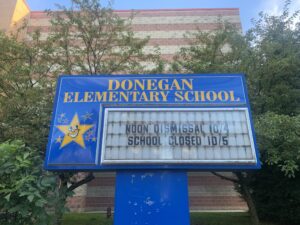
The front of Donegan Elementary School on September 25, 2022. Donegan is part of the Bethlehem Area School District, which has incorporated The Science of Reading method to increase grade-appropriate literacy rates. (Christina Perrier/B&W Staff)
According to NPR, 84% of Bethlehem Area School District kindergartners met or exceeded the benchmark score, and three of the schools saw 100% of these students meeting or exceeding it.
Silva said the approach works across various schools.
“We have 16 elementary schools and they range from high need: with students who qualify for free and reduced lunch, and very low need: suburban schools where houses sell for $500,000 in three days,” Silva said. “The growth that students were showing in kindergarten was independent of the socioeconomic status of the school.”
Regarding the allocation of resources, Silva said the school board believes in equity not equality. Silva said all students need resources, but some need to be given more based on their circumstances.
“Say you have 25 kids in your classroom and there’s five kids that need glasses,” Silva said. “Give the five kids glasses. You don’t need to buy 25 pairs of glasses. You have to be data-informed because you need to know who needs what and when.”
Despite increased literacy levels, some students still struggle with reading and feel the need to take advantage of outside resources.
Bethlehem Area School District families have access to the America Reads tutoring program offered by the Community Service Office at Lehigh University.
With connections to more than 100 local agencies, the office provides community service opportunities to Lehigh students. America Reads is one of the ways in which Lehigh students tutor Bethlehem students.
Ashley Sciora, the assistant director for the Center for Community Engagement who oversees the America Reads program, said there’s still a fair amount of students who need tutoring.
“Normally what we would see with our homework club students is that they would be at least one if not several grade levels behind where they needed to be,” Sciora said.
Farrah Elhefnawy, the graduate assistant at the Community Service Office in charge of overseeing the America Reads/Counts program, said the program allows students to improve relatively quickly.
“At the end of every year, through testing, we see that the students have improved at least one grade level just from one year of tutoring,” Elhefnawy said.
Sciora said the change in reading methodology from balanced literary learning to Science of Reading has been a scaffolded process within the district. By next fall, all the teachers across the district will have completed and started to implement Science of Reading training.
Sciora said she is hoping to see an increase in baseline proficiency among students in need of tutoring.
“Some of the students that we retained were not necessarily being taught by that strategy yet, and so that’s something that we’ll probably be looking at in the fall,” Sciora said. “We’ll be at the point where all of the teachers have gone through that training. All of them will be utilizing that science-based reading curriculum.”
Silva said the plans for the reading program will incorporate grades six, seven and eight to stay ahead of the students who have been coming through the program from its inception.
The administration is also changing the master schedule at all schools so that science, math and social studies can employ some of the high-impact reading strategies. Schools are looking at the next level of teaching literacy, such as vocabulary and comprehension strategies.
“You can’t put everything on everybody simultaneously,” Silva said. “It’s too heavy of a lift. But if you can build it and have the teacher in the next grade learn from the success of the teacher in the previous grade, it’s a lot easier to keep that momentum going.”
The Role of Lehigh’s Community Service Office
Lehigh students devote over 10,000 hours every school year teaching children to read.
The America Reads tutoring program, offered through Lehigh’s Community Service Office, brings together over 100 Lehigh student-tutors and Bethlehem Area School District students at Fountain Hill Elementary School, Donegan Elementary School and Broughal Middle School.
Farrah Elhefnawy, the graduate assistant at the Community Service Office who oversees the reading program, said the students in need of tutoring come with skill sets that are typically at least one grade level behind where they should be performing but can end the year with skills above their intended grade level.
The tutoring program not only impacts students academically, she said, but it also opens their minds to a love of learning and the possibility of attending college.
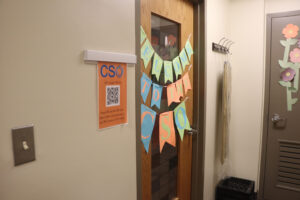
Lehigh’s Office of Community Service on April 30, 2022, in the University Center. This office works with the community on service-based programs such as tutoring at local schools. (Chunjing Yang/B&W Staff)
“The kids look up to our tutors, and our tutors have a lot of knowledge and a lot of experience to share with our students, especially about college life,” Elhefnawy said. “Hopefully that encourages those students to want to have a passion for education and want to go to college to have those experiences as well.”
Ashley Sciora, assistant director for the Center for Community Engagement, said students come in with different barriers and challenges.
The school district and tutoring program looks at not just the academic side of learning but also the childrens’ life circumstances.
“(With) old school education, you would kind of avoid that stuff,” Sciora said. “When a student came into your classroom, you would only focus on the learning, and now it’s a little bit more (of a) whole-style approach. It’s not only what they are learning, it’s also what’s impacting their ability to be able to learn.”
Some schools in the Bethlehem Area School District primarily consist of low socioeconomic families who require additional resources.
Jack Silva, the district’s assistant superintendent and chief academic officer, said they need to get kids what they need.
“But some kids and some teachers, because of the circumstances they’re in, are going to need more.”
Elhefnawy said many Lehigh tutors enter the America Reads program with the motivation of helping these students and their community.
Tutors often join without a background in education, but they’re accepted for reasons beyond their fields of study.
“We have engineers, business majors, science and biology,” Elhefnawy said. “They just share that passion for wanting to better the community and provide a service to the community and better the lives of those kids that they work with.”
Hannah Corea-Dilbert, ‘24, has been working as an America Reads tutor since the fall of 2021.
She said she not only enjoys teaching the kids but loves getting to know them on a personal level.
“It feels nice to be involved and help them out with questions that I wish I had the opportunity to ask college students when I was in middle school,” Corea-Dilbert said.
As their students learn math and reading skills, Lehigh tutors also learn from the experience of teaching and engaging with the community.
“We’ve heard a lot from our tutors saying this is a life-changing experience, especially those who haven’t worked with kids before,” Elhefnawy said. “It allows them to get involved with the community and get to know a lot of people that come from different backgrounds.”

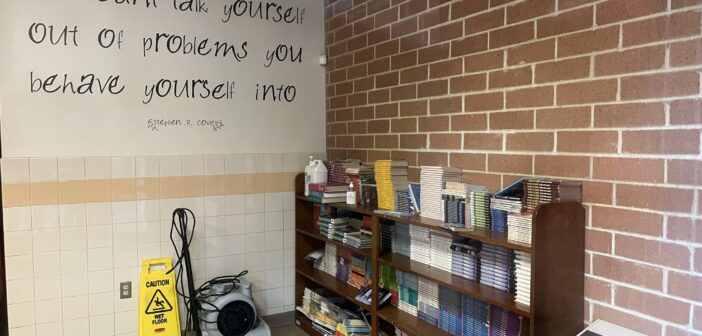

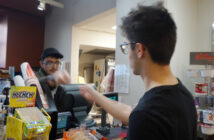
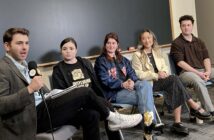
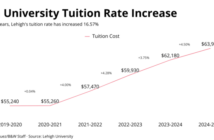
Comment policy
Comments posted to The Brown and White website are reviewed by a moderator before being approved. Incendiary speech or harassing language, including comments targeted at individuals, may be deemed unacceptable and not published. Spam and other soliciting will also be declined.
The Brown and White also reserves the right to not publish entirely anonymous comments.
1 Comment
It might be effective to determine what subjects kids would like to read. Methodology is important but I think it is trumped by interest. If you want to read Dick and Jane works if you aren’t interested Dick and Jane fails. In the 60’s the army used comics to teach maintenance ideas to soldiers who were not enthused about reading tech manuals.